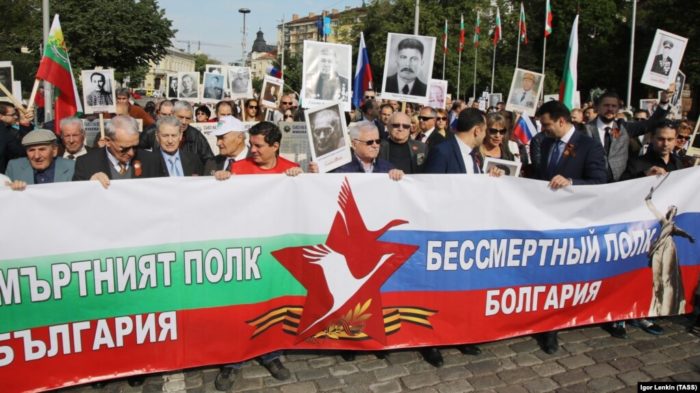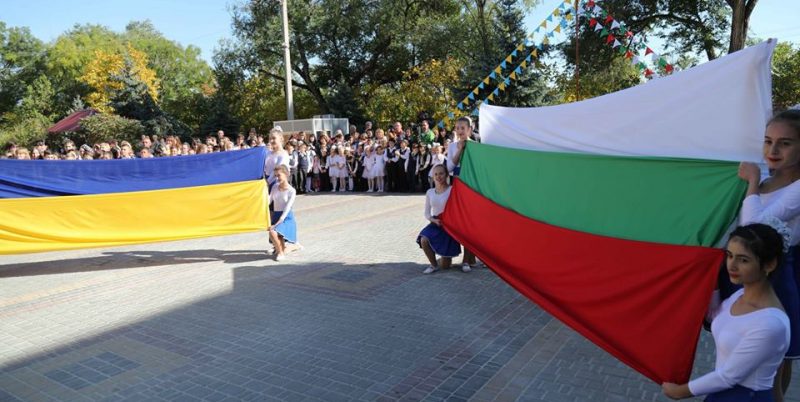Recent news of the partial destruction of the Crimean bridge and the subsequent bombing of Ukrainian civilian infrastructure dominated online. The international community of users did what is usually done: hot takes were offered, long threads of analysis concocted, and false claims were debunked.
A similar hum of information filled another corner of the Internet, one that remains largely unseen by experts. Russia's war against Ukraine is a never-ending subject of discussion in former Soviet satellite Bulgaria, where the dominant narratives are, at best, a lukewarm rendition of the truth.
Everyone loves Russia
Bulgaria, a NATO ally bordering the Black Sea, is known to foreign audiences as “the poorest” and “most corrupt” member of the EU. But Vladimir Chizhov, the former Russian ambassador to the European Union, famously described the small state as “in a good position to become… a sort of Trojan horse in the EU” for Russia.
Bulgarian President Rumen Radev was the only head of state who refused to sign a declaration of support for Ukraine. Radev drew sharp criticism for his silence following Russian strikes on 10 October, but eventually joined the Bucharest Nine leaders' condemnation of the attacks.
Meanwhile, another storm was brewing: in times when isolating Russian is considered a crucial diplomatic strategy, the Russian ambassador to Bulgaria Eleonora Mitrofanova was invited to the inauguration of the newly-elected Parliament. Not inviting Mitrofanova would be “akin to a declaration of war,” said Vezhdi Rashidov, former Minister of Culture and member of the GERB party (part of the European People’s Party).
GERB’s political opponents – the Bulgarian Socialist Party (BSP) – recently refused to sign a joint declaration by the European Socialists (PES), because “two of the three points are against Russia.”
The newly elected Bulgarian parliament starts a fight on whether to invite the Russian ambassador at the inaugural session.
https://t.co/OjX2XFnLF1— Dimitar Bechev (@DimitarBechev) October 11, 2022
A tenfold spike in Russian disinformation
The Bulgarian Socialists and President Radev, along with the far-right Revival party, have insisted on remaining “neutral” since the start of the conflict.
“Neutrality” is among several propaganda narratives identified in a study by the Human and Social Studies Foundation (HSSF), which notes a ten-fold increase of Russian propaganda in the Bulgarian infosphere since the start of the invasion. Pro-Russian narratives insist on “neutrality” as a marker of sovereignty vis-à-vis the European Union and NATO, presented as part of the collective West, or “the enemy,” experts write.
In February, 61% of Bulgarians believed that the Russian invasion of Ukraine was “unprovoked.” Many said they had lost faith in the Russian state and citizens opened their homes to Ukrainian refugees.
However, earlier this summer, 70% agreed that maintaining the prices of goods and services is more important than defending common values of democracy and freedom. As time went on, sightings of spray-painted Z’s became more and more common, as did reports of harassment towards Ukrainians.
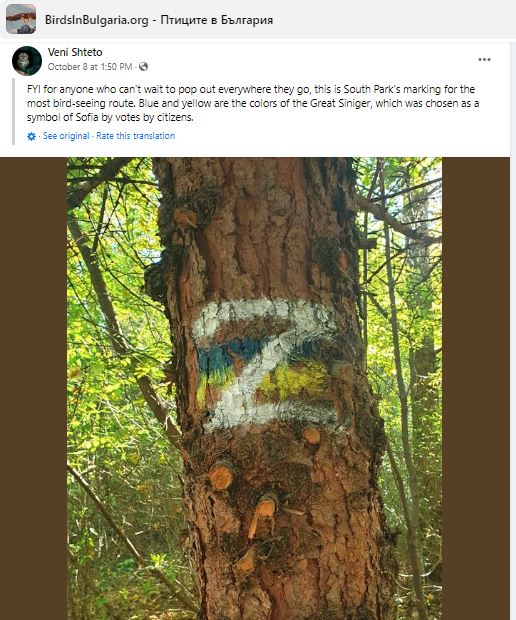
HSSF experts say that new propaganda narratives represent Ukraine as a “weapon of the West” against Russia, which, in turn, serves as a justification for military aggression. The attack is thus presented as a retaliation long-overdue.
Furthermore, invasion-related propaganda is adapted to existing narratives which have circulated since 2013. Researchers point out that false allegations about Nazism were used to discredit the Maidan protests as well.
In the past week, large Bulgarian television networks such as bTV were criticized for quoting Russian sources on the Crimean bridge attack without challenging misleading information.
A long-form investigation into the information landscape revealed that a large part of the pages and groups pushing anti-Ukrainian disinformation in Bulgarian are openly pro-Russian. Facebook remains the platform of choice in the country, and the communities where war-related falsehoods circulate are now well-known to journalists and specialists in the field since they peddled COVID-19 medical misinformation, as well as targeted smear campaigns against important social legislation.
A circular economy of disinformation
The arch-narratives are easily discernable: an “evil,” “decadent” West is imposing foreign values on the East via the weapon of a virus/feminism/pro-minorities legislation/Ukraine. Russia is the protector of the “traditional,” “sovereign,” and “holy.” As times change, so do the protagonists, but the story remains the same.
Pieces that cater to this archetypal story generate enormous engagement online – both real and bot-like. And reports emerge of Russia harnessing these displays of public sentiment for domestic consumption – so much that the phrase “Болгары восхитились” [The Bulgarians are in awe] became a meme online and Bulgaria was picked by the French Le Monde as an example of Russian practices. Government Information agency Ria Novosti uses online comments of Bulgarians to create entire articles showcasing alleged foreign support for Russia.
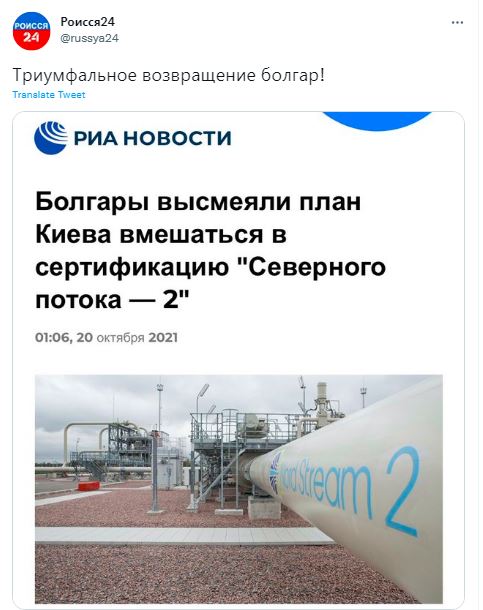
Between Eastern influence and Western money
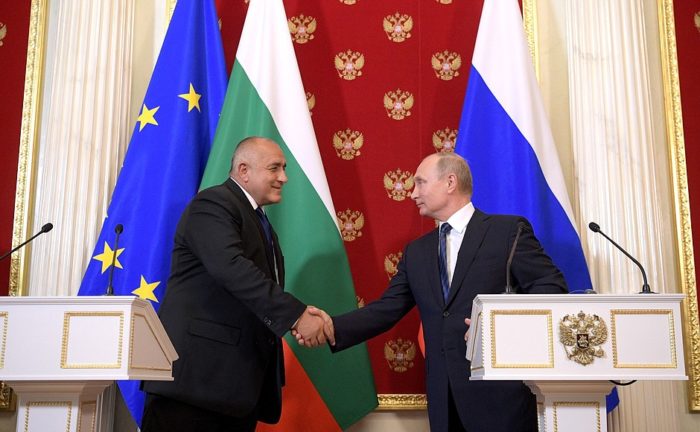
The political implications are real. The country is visibly absent from the list of former Soviet states or satellites who are lending a hand to Ukraine. Sofia was gripped by a crisis of indecision over sending military aid, which it refused despite Ukrainian pleas. Later, reports emerged of equipment shipped in secrecy. Latvia, Poland, Lithuania, Slovenia, and the Czech Republic stand in stark contrast not only to Bulgaria but to Serbia and Hungary as well.
But unlike Hungary’s Orban, who has been drawing the EU’s ire for a long time, Bulgaria’s ex-PM of thirteen years and winner of this October’s parliamentary elections Boyko Borissov is a Janus-like figure. Borissov rules with one face turned to Moscow and the other – towards Brussels.
For one, the ex-PM poured €1.5 billion into building the Turkish Stream pipeline, which allowed Russia to cut off supplies via Ukraine. Borissov’s successor Kiril Petkov launched an investigation into the pipeline’s construction before his government was sabotaged by coalition partners. GERB’s former government also attempted to resurrect a project for a Russian-equipped nuclear power plant, which would have made the country even more dependent on Russian energy. Borissov’s successor scrapped the project shortly before the invasion.
Some pundits may point fingers to Bulgaria's political instability in the last 2 years, but a stable government does not necessarily equal a good government for Bulgaria’s stalled energy transition when one looks at GERB’s track record with Turkish Stream, and other issues. 3/4 pic.twitter.com/mG3CQZt1do
— Mirela Petkova (@petkova_mirela) October 12, 2022
Borissov knows well that the Bulgarian political elite cannot flourish without European money: this is why GERB’s image and public relations strategy relies heavily on pro-European rhetoric.
GERB enjoys the support of pro-European citizens who are hostile to the legacy of totalitarian communism. If in times of peace actions were more complex to understand than words, the invasion puts Borissov between a rock and a hard place. Experts believe the self-proclaimed “keeper of the balance” between East and West will try to lay low and avoid the spotlight. Borissov scolded Vezhdi Rashidov for his remarks on the Russian ambassador and declared his support for Ukraine. It is yet to be seen if the new government would translate words into actions.
In the meantime, anti-Ukrainian rhetoric flows freely through media channels that over the past decade were co-opted and turned into government mouthpieces under Borissov. Despite the fact that Russia was described as “the largest threat to national security” in the 2017 Annual National Security Report, years later the country remains a “textbook case of Russian penetration.”
The actions needed to turn the tide – measures against disinformation, assessing internal national security risks, and providing aid to Ukraine – are also politically inconvenient for parts of the establishment. Bulgaria treads on thin ice as the crisis deepens. Words of support, it sometimes seems, are only uttered in order “not to make fools of ourselves in front of the foreigners,” as Borissov famously said once upon a time.

Related:
- Moscow orchestrates controversy between Bulgaria and Ukraine to weaken Kyiv
- Russia now wants NATO out of Bulgaria, Romania, and 12 other countries
- Russian networks in Bulgaria
- “Russophiles” aim to steer Bulgaria away from NATO
- Bucharest Nine+, EU slam Russian missile attacks on Ukrainian cities as war crimes

